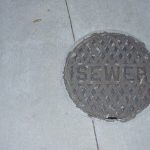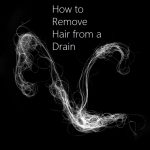Water damage can be the most frustrating and stressful thing homeowners might experience in their lifetime. Flooding or severe water damage can lead to serious problems in your home. Regardless of the cause of water damage, knowing how to stop and repair water damage in your home is essential. This can cause major inconvenience for the entire family, and delays can lead to many more issues that can be expensive to repair. Ignoring the problem can invite carpenter ants and termites into the property leading to further damage to your valuable belongings. Fixing the issue at the earliest can be very beneficial so that repairs can be done cost-effectively. As the costliest disaster, water damage can cause a large amount of money to be lost in the long run.
Water damage arises from a variety of sources, which include-
Leaking pipes
Sewer issues
Flooding
Heavy rainfall
Blocked gutters
Flooded basement
Broken appliances
Sewer backups
Mold growth is the worst consequence of water damage, and it can be a health hazard for the people living in the household. Structural problems arise after water damage in your home, and they can also lead to safety issues in the long run. Mold growth starts after 24 hours of water damage, and eventually, it can lead to damage to the walls, floors, and electrical components of your home.
10 Ways to stop and repair water damage in your home
1. Shut down all water sources—The best way to prevent water damage is to shut down the water sources so that they do not add to the water woes. Water damage can severely impact the structure and foundation of your home, and hence, you need to act quickly to prevent the issues.
2. Identify plumbing problems—Water damage is mainly caused by plumbing problems like broken fixtures, faulty faucets, and leaky pipes, which result in gradual water accumulation. When water accumulates on the floors and walls, it can cause water damage, thereby impacting the structural components of your home. Therefore, regular plumbing system inspections are crucial so any leaks can be repaired as soon as possible.
3. Prepare for adverse weather conditions- some weather conditions, like storms, hurricanes, and heavy rainfall, contribute to water damage. Flooding is also known to damage the drainage system and eventually cause water to seep into the basement and foundation of your property. Therefore, it is essential to be prepared for adverse weather conditions, and you need to pay attention to the most vulnerable areas of the home, like crawl spaces and basements.
4. Opt for regular gutter cleaning- gutter cleaning is as essential as roof inspection because any issues with the gutters can result in flooding in your home. If you want to protect your home’s structural integrity, choosing gutter cleaning professionals to inspect, repair, and maintain the gutters regularly is essential. Gutters perform the basic function of reducing moisture content and redirecting water away from your home’s foundation. Regular cleaning of the gutters becomes even more critical if you have trees near your home, as leaves might block the gutters, impacting their functionality.
5. Check moisture levels—If you want to repair water damage, it is important to check moisture levels in your home. Excess moisture and humidity are known to cause mold and mildew. Inspection of damp areas of your home, like bathrooms and basements, will address the underlying water leakage problem efficiently.
6. Start the water drying process—Using dehumidifiers and air movers is known to accelerate the drying process after your home has been impacted by water damage. This equipment helps circulate indoor air so that the interiors and belongings are dried quickly and efficiently. Whether it is leakage, flooding, or any other water damage problem, you should be proactive in carrying on the drying process so that mold growth can be prevented.
7. Don’t forget roof inspection—the roof plays an important role in protecting your home, but for enhanced functionality, you need to get the roof inspected regularly. Any kind of visible damage, leaks, or water damage needs to be identified and addressed immediately. Always look for stains and spots on the roof, as they indicate invisible water damage issues that might be impacting the roof and its materials. The damaged portion of the roof should be repaired or replaced so that it does not lead to water damage.
8. Protect your belongings—An important step of water damage repair is protecting and restoring your home’s belongings. Attics and basements need special attention because these areas are more prone to flooding and water damage. Always store all your belongings in a safe and secure place so that they do not get affected by water damage.
9. Dispose of damaged materials- water damage can impact your home’s belongings, and you need to dispose of all the damaged materials as soon as possible. This will prevent any further damage caused by mold growth found in wet, humid, and dark areas of the home. After flooding and water damage, certain materials get damaged, and getting them repaired is impossible; you should discard these materials because keeping them for long can lead to mold and mildew growth. Grey and black water damage is known to damage belongings beyond repair, and it is advisable to discard these items as soon as possible so that your loved ones don’t face the risks of severe health hazards.
10. Appliance maintenance—Faulty appliances can also cause water damage, flooding, and leakage in your home. This is why inspection and maintenance of home appliances are crucial to prevent water damage. Refrigeration hoses and washing machines need to be checked regularly because old and outdated appliances are the most common cause of leakage. You should never ignore the problem with the appliance because it can lead to expensive repairs later.
Disinfect your home—Water damage is known to cause a large number of health issues if it is not addressed properly. Therefore, the impacted areas need to be disinfected and sanitized so that any harmful mold and mildew do not cause contamination among the homeowners. Always be careful while handling any belongings that have been affected by mold growth so that further spread can be avoided.
Install water detection equipment- even minor leaks inside your home can result in severe water damage issues if unnoticed. This is why installation of this equipment is recommended for detecting slow leaks and low moisture levels that might pose a threat in the long run. Using water detectors near dishwashers, toilets, washing machines, and sump pimps can prevent extensive water damage as well as mold growth.
Pay attention to the drainage system- a home with a sound drainage system will never face water damage. Moreover, poor drainage systems can cause uneven settling, cracks, and pathways for unrestricted water to enter your property. Therefore, pay attention to the drainage of your home, especially the gutters, because poor drainage systems can damage the foundation and siding. Additionally, you should always prevent excess water accumulation in any area of your home because it can lead to rot, mold, mildew, and insects.
Look for water leaks—even minor ones can significantly impact your home if they are not fixed at the right time. You need to make sure that persistent leaks are not causing havoc to your home interiors because they cause contamination. Additionally, even small leaks should be addressed quickly before they can impact your home so that you will no longer face the risks of water damage. Inspection of every house area is essential to know the location of water leaks.
These steps are crucial in achieving a safe and water-secure home that is not impacted by water damage. Hence, your house and its belongings will be safe with early detection of water damage so that you can act immediately when you find any water-related risks. To keep the structural integrity of your home intact, you should follow preventative measures so that water damage can be eliminated.
Contact a water damage restoration professional with the skills and expertise to effectively deal with water damage issues. These professionals are highly skilled and trained in using different equipment that facilitates smooth water damage repair and drying out of your space. These plumbing experts know the best ways to repair water damage to preserve the integrity of your property. Hiring professionals offer complete peace of mind that water damage does not cause any adverse effect on your property.





